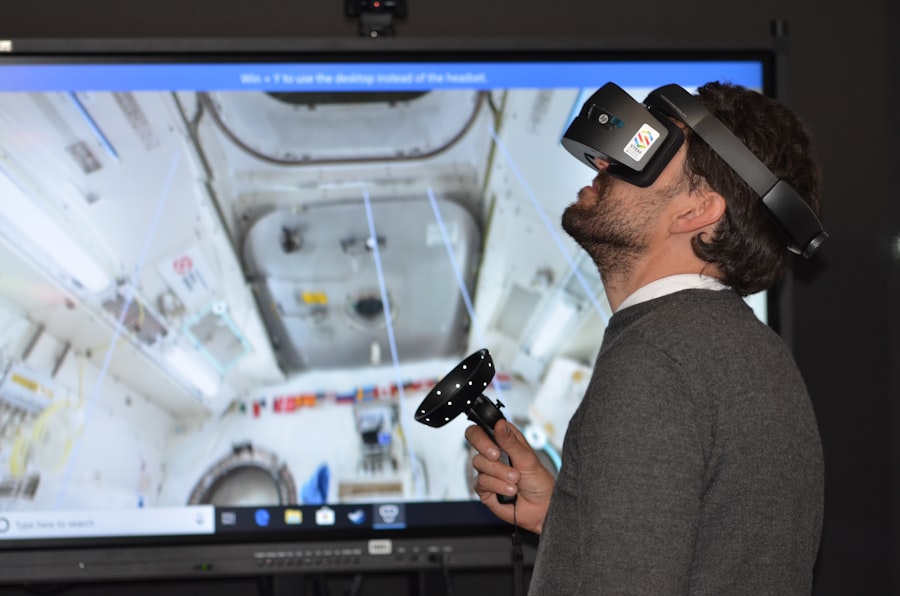Avicenna, also known as Ibn Sina, was a Persian polymath whose contributions to philosophy, medicine, and science have left an indelible mark on the intellectual landscape of the world.
His philosophical inquiries laid the groundwork for later thinkers in both the Islamic and Western traditions.
In an age where technology is rapidly evolving, the concept of the Metaverse—a collective virtual shared space created by the convergence of virtually enhanced physical reality and physically persistent virtual reality—invites a re-examination of Avicenna’s ideas. As we delve into Avicenna’s perspective on the Metaverse, we find ourselves at a fascinating intersection of ancient philosophy and modern technology. The Metaverse challenges our understanding of reality, identity, and human interaction, themes that Avicenna grappled with in his own time.
By applying his philosophical insights to this contemporary phenomenon, we can gain a deeper understanding of how the Metaverse might shape our lives and our understanding of existence itself.
Key Takeaways
- Avicenna was a Persian polymath who had a unique perspective on the nature of reality and its relationship to the Metaverse.
- According to Avicenna, reality is composed of both physical and spiritual elements, and the Metaverse can be seen as an extension of this dual nature.
- Avicenna saw the Metaverse as a tool for expanding human knowledge, creativity, and connectivity, offering positive potential for personal and societal growth.
- However, Avicenna also warned of the negative aspects of the Metaverse, such as the potential for escapism, addiction, and the distortion of reality.
- Avicenna believed that the Metaverse could impact human interaction by altering the way people communicate, form relationships, and perceive the world, raising ethical concerns about its use.
Avicenna’s Perspective on the Nature of Reality
Essence and Existence in the Digital Realm
Avicenna might argue that while avatars and virtual objects in the Metaverse possess a form of existence within that realm, their essence remains tied to the physical world from which they originate. This perspective highlights the complex relationship between the digital and physical worlds, and how they intersect and influence one another.
The Role of Human Understanding
Moreover, Avicenna’s concept of “the Active Intellect” suggests that human understanding is shaped by both sensory experience and intellectual reasoning. In the context of the Metaverse, this raises questions about how virtual experiences influence our perception of reality. Are we merely engaging with a simulation, or can these experiences lead to genuine knowledge?
Implications for Truth and Existence
Avicenna would likely encourage a critical examination of how our interactions within the Metaverse affect our understanding of truth and existence.
By exploring these questions, we can gain a deeper understanding of the complex relationships between essence, existence, and human perception.
The Positive Aspects of the Metaverse According to Avicenna

From Avicenna’s perspective, the Metaverse could be seen as a new frontier for human knowledge and creativity. He believed in the power of intellectual exploration and the pursuit of knowledge as fundamental to human existence. The Metaverse offers an expansive platform for learning, collaboration, and innovation that transcends geographical boundaries.
In this digital realm, individuals can engage with diverse cultures, ideas, and perspectives, fostering a global community united by shared interests and aspirations. Furthermore, Avicenna might appreciate the potential for enhanced self-expression within the Metaverse. Just as he explored various dimensions of human experience through his writings, individuals in the Metaverse can craft their identities and narratives in ways that reflect their innermost thoughts and desires.
This freedom to explore different facets of oneself could lead to greater self-awareness and personal growth, aligning with Avicenna’s belief in the importance of self-knowledge as a pathway to enlightenment.
The Negative Aspects of the Metaverse According to Avicenna
However, Avicenna would not shy away from addressing the potential pitfalls of the Metaverse. One significant concern might be the blurring of lines between reality and illusion. In his philosophy, he emphasized the importance of distinguishing between true knowledge and mere opinion or illusion.
The immersive nature of the Metaverse could lead individuals to become overly engrossed in virtual experiences, potentially undermining their ability to engage with the physical world meaningfully. Additionally, Avicenna might express concern about the impact of the Metaverse on mental health and well-being. The allure of an idealized digital existence could foster feelings of inadequacy or disconnection from reality among users.
He would likely advocate for a balanced approach to technology—one that encourages individuals to remain grounded in their physical lives while exploring the possibilities offered by virtual environments. The challenge lies in ensuring that technology serves as a tool for enrichment rather than a source of alienation.
Avicenna’s Views on the Impact of the Metaverse on Human Interaction
Avicenna’s exploration of human relationships would provide valuable insights into how the Metaverse reshapes social interactions. He believed that genuine connections are rooted in shared experiences and mutual understanding. While the Metaverse offers new avenues for communication and collaboration, it also raises questions about the authenticity of these interactions.
Are virtual friendships as meaningful as those formed in person? Avicenna might argue that while digital connections can enhance our social networks, they should not replace face-to-face interactions that foster deeper emotional bonds. Moreover, Avicenna would likely emphasize the importance of empathy in human relationships.
The Metaverse has the potential to cultivate empathy by allowing individuals to step into each other’s shoes—quite literally—through immersive experiences. However, he would caution against losing sight of the emotional nuances that come with real-world interactions. The challenge lies in harnessing technology to enhance our capacity for empathy while remaining aware of its limitations.
Avicenna’s Insights on the Ethical Implications of the Metaverse

Privacy and Autonomy in the Digital Realm
One pressing issue is privacy; in a world where personal data is commodified, individuals may find themselves vulnerable to exploitation. Avicenna would likely advocate for ethical guidelines that prioritize individual autonomy and consent in digital spaces. He would argue that just as we have moral obligations in our physical interactions, we must extend those principles to our virtual engagements.
Identity and Representation in the Metaverse
Avicenna might explore questions surrounding identity and representation within the Metaverse. The ability to create avatars allows for self-expression but also raises concerns about authenticity and deception. He would likely urge users to reflect on their motivations for adopting certain identities and consider how these choices impact their relationships with others.
In this way, Avicenna’s ethical framework would encourage individuals to navigate the complexities of virtual existence with integrity and mindfulness. By doing so, individuals can ensure that their virtual interactions align with their moral values and principles, fostering a more ethical and responsible Metaverse community.
Avicenna’s Reflections on the Role of Technology in Shaping the Metaverse
Avicenna recognized technology as a powerful tool for advancing knowledge and improving human life. He would likely view the technological underpinnings of the Metaverse—such as virtual reality, augmented reality, and artificial intelligence—as extensions of human creativity and ingenuity. However, he would also caution against an uncritical embrace of technology without considering its implications for society and individual well-being.
In his reflections on technology’s role in shaping the Metaverse, Avicenna might emphasize the importance of intentional design that prioritizes user experience and ethical considerations. He would advocate for a collaborative approach involving philosophers, technologists, and ethicists working together to create a digital environment that enhances human flourishing rather than detracting from it. Ultimately, he would argue that technology should serve humanity’s higher purposes rather than become an end in itself.
Avicenna’s Overall Assessment of the Metaverse
In conclusion, Avicenna’s philosophical insights provide a rich framework for understanding the complexities of the Metaverse. While he would recognize its potential for fostering knowledge, creativity, and connection, he would also urge caution regarding its impact on reality perception, mental health, and ethical considerations. His emphasis on self-knowledge, empathy, and moral responsibility serves as a guiding light for navigating this new digital frontier.
As we continue to explore the possibilities offered by the Metaverse, we would do well to heed Avicenna’s wisdom—balancing our engagement with technology while remaining grounded in our humanity. By embracing both its positive aspects and acknowledging its challenges, we can strive to create a Metaverse that reflects our highest aspirations for knowledge, connection, and ethical living. In doing so, we honor not only Avicenna’s legacy but also our shared responsibility to shape a future that enriches our lives rather than diminishes them.
If we were to ask the philosopher Avicenna (Ibn Sina) about the metaverse in an interview, he may provide insights on both the positive and negative aspects of this virtual reality concept. Avicenna might discuss how the metaverse offers a new realm for exploration and creativity, allowing individuals to transcend physical limitations and connect with others in innovative ways. However, he may also caution against the potential dangers of becoming too immersed in a digital world, warning of the risks of losing touch with reality and neglecting important aspects of human existence. To learn more about the intersection of philosophy and virtual reality, check out this article on











Leave a Reply